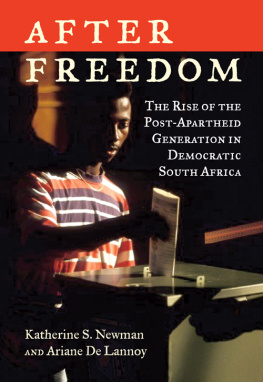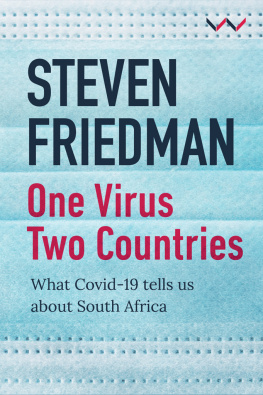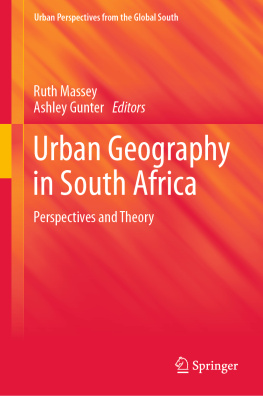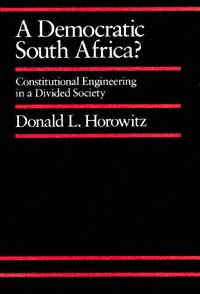Donald L. Horowitz - A Democratic South Africa?: Constitutional Engineering in a Divided Society (Perspectives on Southern Africa, No 46)
Here you can read online Donald L. Horowitz - A Democratic South Africa?: Constitutional Engineering in a Divided Society (Perspectives on Southern Africa, No 46) full text of the book (entire story) in english for free. Download pdf and epub, get meaning, cover and reviews about this ebook. year: 1992, publisher: University of California Press, genre: Politics. Description of the work, (preface) as well as reviews are available. Best literature library LitArk.com created for fans of good reading and offers a wide selection of genres:
Romance novel
Science fiction
Adventure
Detective
Science
History
Home and family
Prose
Art
Politics
Computer
Non-fiction
Religion
Business
Children
Humor
Choose a favorite category and find really read worthwhile books. Enjoy immersion in the world of imagination, feel the emotions of the characters or learn something new for yourself, make an fascinating discovery.

- Book:A Democratic South Africa?: Constitutional Engineering in a Divided Society (Perspectives on Southern Africa, No 46)
- Author:
- Publisher:University of California Press
- Genre:
- Year:1992
- Rating:4 / 5
- Favourites:Add to favourites
- Your mark:
A Democratic South Africa?: Constitutional Engineering in a Divided Society (Perspectives on Southern Africa, No 46): summary, description and annotation
We offer to read an annotation, description, summary or preface (depends on what the author of the book "A Democratic South Africa?: Constitutional Engineering in a Divided Society (Perspectives on Southern Africa, No 46)" wrote himself). If you haven't found the necessary information about the book — write in the comments, we will try to find it.
Donald L. Horowitz: author's other books
Who wrote A Democratic South Africa?: Constitutional Engineering in a Divided Society (Perspectives on Southern Africa, No 46)? Find out the surname, the name of the author of the book and a list of all author's works by series.









